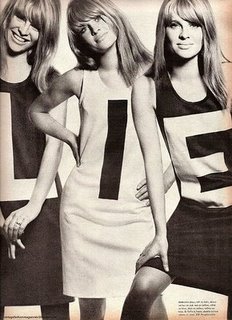
So that's how I found myself in the position of reputationally damaging one of my favorite players.
On Saturday, when the sun should've been setting and I should've been buying chicken broth, I ended up having an impassioned phone conversation with Chris Littmann over those Jennings/Budden tapes. I hadn't taped them off the original camera feed, or put them on message boards, hip-hip with a trace of Knicks, in the first place. But we were in a position to, as the kids say, blow up his spot in a major way. The question was, how to do so without coming over as prudish, judgmental asses who don't actually like getting to hear players really, truly be themselves.
I think we—well, actually, Chris—did a good job softening, or ambiguifying, the blow. But the fact remains: The Baseline, formerly known as the mainstream media outlet most devoted to Jennings cheerleading (and Rubio-hating), was now spearheading the movement to get out some quotes that, in the hands of the stupid, would further tarnish Jennings's already tricky image. In the past, I'd resisted putting up incriminating Twits, Here, though, I thought of throwing these videos up on FD before the whole prospect of going platinum with them came up. For anyone with half a brain, or half a clue as to how NBA players—especially an outspoken nut like Jennings—would talk in a "safe" situation, these are gold.
Are there people too foolish, or walled-in, to not catch the obviously whiff of absurdity and playfulness in everything Jennings says here? Of course. Should I spend my whole journalistic life dancing around these assholes with kid feet? I don't want to. To me, Jennings follows naturally from Beasley or Arenas, both of whom are distant descendents of Muhammad Ali. They talk. We listen. They do or don't back it up. But we listen because we know they might.
The reason we ultimately went big-time with the story was the abrupt cover-up/misunderstanding/Twitter shutdown surrounding it. As Chris said in his post, we like seeing this side of players. But it's not clear the players themselves have really thought this "people want to see the real me" thing through all that well. Most importantly, are they supposed to be showing us the edgy outskirts of their public persona, or the first shores of who they really are? That is, are Twitter, or presumably ephemeral, semi-private (if you don't know. . . ) camera feeds, meant for the hardcore fans who just want more, more, more content, and will tolerate some rough edges—or those so in tune with the player that they actually "get" them?

It's clear that ballers understand the marketing potential of Twitter, and recognize the authenticity factor contained therein. But again, are they supposed to just do them, and let the interested public see a little, or learn a whole new set of rules for how to reveal layers of their persona that are off-limits in press conferences without having to stage a Cultural Translation 101 seminar on the internet? Check out the Wade Twits in the Baseline post. Hard to see these utterances as anything other than Wade ignoring the public, or figuring anyone watching his Twitter exists in some sort of idealized fan vacuum. Either way, the question of audience, and public presentation, has gone out the window. That must be liberating—not just to get to say whatever, but to know there's an audience for it. But exactly waht "say anything" means remains to be seen.
As we can see from the deletion of Jennings's Twitter, it's not like agents know exactly how to deal with this newfound questions of real/too real. By its very nature, athlete social media should push the envelope a little. Remember Arenas's blog, anyone? However, that was far more mediated, vetted, and no matter how renegage it seemed at the time, a so-called "underground" version of the Arenas emerging in the press. What Jennings or Wade is saying here is irreconcilable with their mainstream personas. It forces us to acknowledge who these players might really be—a "real" that's only terrifying if you're incapable of reading "fuck the Knicks" as anything other than an off-hand joke.
So consider this a challenge not to players, but to fans, the media, and agencies. These guys want to put themselves out there. Clearly, it's seen as an opportunity for them to be themselves, in a way that the strictures of modern marketing doesn't allow for. How to reconcile this behavior with the vanilla image that moves real money? Where's the ledge? Amidst all the juvenile finger-wagging that will spring up around these Jennings comments, I want to know what's next: What happens to those of us who want to hear raw and uncut Brandon?

LIke I said after these broke, if only Jennings had cleaned up his language a little bit, this could've been viral gold and an absolute marketing coup if the plan is to sell his Hollywood persona as something for the next generation. As it is, we're plunged right back into some of the most tired culture wars, or even clash of basketball civilizations. When that clucking clears away, though, it's up to young players and their management to figure out the new rules for unfiltered interaction with their public. At least that way, maybe the rest of the world can learn the difference between Jennings acting out and the rookie PG really sowing the seeds of discontent.
Post-script worth noting: It appears (from what we're hearing) that Brandon himself pulled the Twitter page. Maybe it was reactionary, preparing for the worst from all other parties involved. But certainly, this indicates that even this most "naive" of social media doyens realizes he needs to regroup and figure out what balance to strike.
(Working slowly toward a Suns post. Maybe we'll wait to see if it actually goes down.)















No comments:
Post a Comment